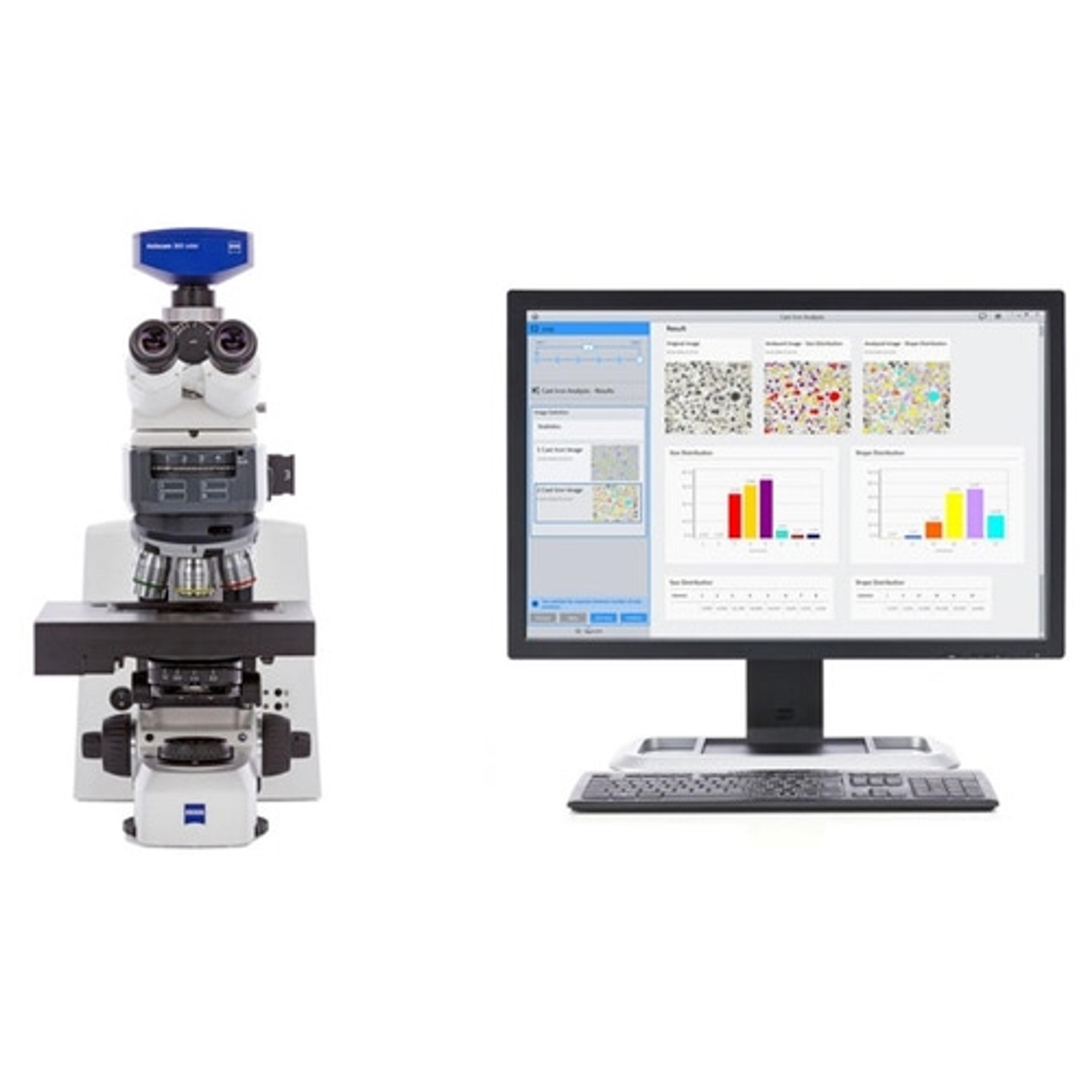ZEISS revolutionizes quantitative petrography
ZEISS has introduced a unique digitization system for virtual microscopy, collaboration and machine learning data analytics
27 Sept 2021
ZEISS has announced it is introducing a new groundbreaking solution for petrographic analysis. ZEISS Axioscan 7 expands the possibilities of automated petrography by combining unique motorized polarization acquisition modes with unprecedented speed and a rich software ecosystem for visualization, analysis, and collaboration.
Fully automated acquisition now comes with unprecedented speed across even the largest sample collections. Coupled with trusted ZEISS optical quality this ensures consistent and reproducible imaging and analysis. The ZEISS ZEN Pol Viewer allows for complex multichannel polarization data to be visualized and interrogated in an intuitive environment as a virtual petrographic microscope. Data can be stored locally or automatically uploaded to the cloud for online visualization, distribution and collaboration, allowing researchers to share their images online and organize entire projects on the go.
Polarization images with unprecedented flexibility
Speed, efficiency, and multichannel viewing are critical when it comes to petrographic dataset analysis. ZEISS Axioscan 7 employs swift and reproducible LED illumination and a sophisticated filter concept to efficiently separate a broad range of channels, using the new motorized stage and image acquisition system. Aperture settings are automatically adjusted and optimized to the numerical aperture of the selected objective.
Visualize complex digitized petrographic data
Geological teaching and research require specialized visualization solutions and global collaboration. Remote access to fully digitized thin section collections augments traditional teaching approaches through blended learning, allowing for a flexible approach to tackling complex ideas.
ZEISS Axioscan 7, the innovative digitization platform, goes beyond collecting multiple polarization modes - brightfield, plane polarization, cross polarization, or circular polarization. It automatically simulates stage rotation such that the sample appears exactly as it would in a traditional petrographic light microscope, even whilst observing multiple image types. This facilitates the learning process in a teaching environment in the lab and online and creates a unique and immersive petrographic experience.
Automated quantitative petrography
Multimodal acquisition and digitization allow for fully automated quantification and analysis of complex optical mineralogy data. Machine learning and advanced image analysis can be used to classify mineralogy and porosity, as well as identify individual mineral grains directly from the unique rotating cross polarized data. Birefringence analysis allows for fabrics and anisotropy to be quantified using mineral-by-mineral identification of extinction orientation, and subsequent grain identification used for grain size, shape and orientation analysis. The extremely reproducible nature of ZEISS Axioscan 7 data allow for large batch analysis to be interrogated and reports generated with only minimal user interaction.
A sound investment
The demand for higher throughput and screening capability drives the need for automated instruments. ZEISS Axioscan 7 provides automation without sacrificing flexibility or the high quality of images needed to attract a very wide range of users to core imaging facilities. With approaches as varied as visualization for students to advanced analytics in industry, the new slide scanner attracts users from the full range of geoscience workflows. The powerful combination of accommodating a broad user base with robust design places ZEISS Axioscan 7 as a top performer when it comes to utilization & productivity, and a rapid return on investment.
Want the latest science news straight to your inbox? Become a SelectScience member for free today>>

